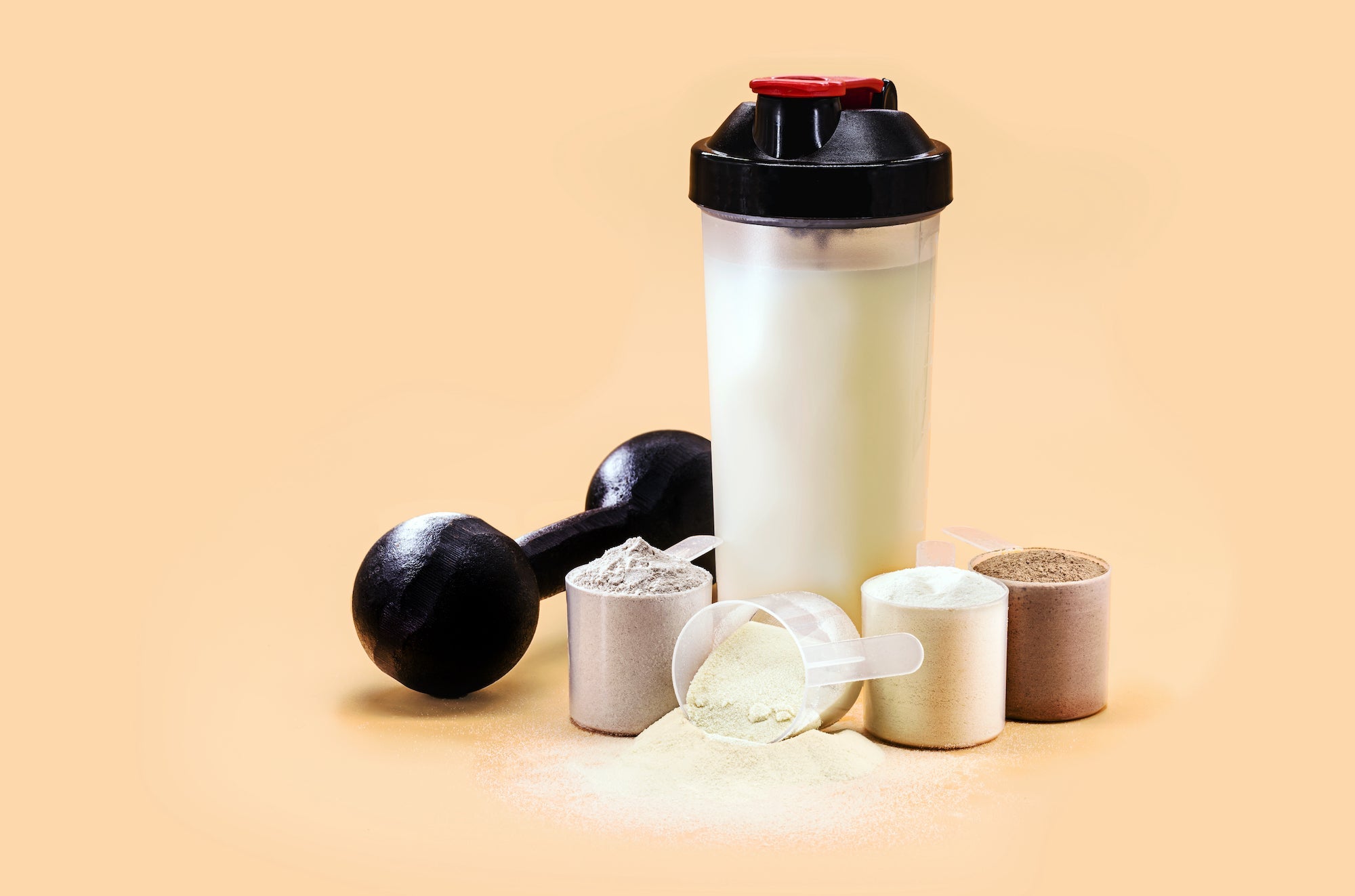When you think of potassium, a banana likely springs to mind, renowned for its rich potassium content and its role in staving off muscle cramps. But there’s much more to this essential mineral than meets the eye.
Beyond its familiar link to muscle health, potassium is a powerhouse for hydration and heart health, among other benefits. And neglecting this nutrient can have serious repercussions for your overall health.
This article will unveil the benefits of potassium, highlighting its importance beyond the common perceptions and exploring how it is vital to our health and vitality.
What Is Potassium?
Potassium is a mineral vital for many bodily functions. Once inside the body, it functions as an electrolyte, meaning it conducts electrical impulses that activate specific cell and nerve functions. Your body uses these impulses to manage a variety of bodily processes, including heart rhythm, muscle contractions, and nerve signaling. It’s also a key player in maintaining the balance of fluids in the body.
As such, consuming too much or too little potassium can affect many crucial functions.
How Much Potassium Do You Need?
The National Institute of Health recommends that adult men should consume 3,400 milligrams of potassium daily, while women should aim for 2,600 milligrams.[*] And many health experts suggest consuming even more: 3,500–4,700 mg of potassium daily—especially if you’re active. [*]
However, many Americans fall short of these guidelines. On average, adult men aged 20 and above consume around 3,000 milligrams, and women in the same age group get about 2,300 milligrams.[*]
Over time, insufficient low potassium intake can lead to several health issues, such as elevated blood pressure, increased risk of dehydration, and muscle function complications.
What Are the Benefits of Potassium?
The advantages of potassium are wide-ranging and significant for overall health. Let’s take a look at the top benefits.
#1: Helps You Stay Hydrated
Potassium’s role in regulating the body’s fluid balance is a cornerstone of its health benefits. This mineral works closely with sodium, another essential electrolyte, to ensure that the body’s cells, tissues, and organs maintain optimal water levels.[*] This balance is necessary for not only hydration, but also the proper functioning of every cell and organ.
Every day, your body loses electrolytes, including potassium, through sweat, urine, and feces. This loss can disrupt the delicate balance of fluids and electrolytes, leading to dehydration if not adequately replenished. Maintaining adequate potassium levels (along with sodium) can help hydration levels stay optimized, reducing the risk of dehydration-related issues, such as muscle cramps, fatigue, headaches, and decreased exercise performance.
This is why many electrolyte powders, including IQMIX, contain both potassium and sodium to support hydration.
#2: May Reduce Blood Pressure
Nearly one-third of Americans are affected by high blood pressure, a condition in which blood exerts excessive force against the walls of your veins and arteries.[*] This prolonged pressure increases the risk of cardiovascular disease—the world’s leading cause of death. Often referred to as “the silent killer,” high blood pressure typically doesn’t present noticeable symptoms, leaving many unaware of their condition.
A potassium-rich diet may reduce blood pressure by aiding the body in eliminating excess sodium. While sodium is a necessary mineral, consuming too much can contribute to elevated blood pressure.[*]
Research highlights the impact of potassium on blood pressure regulation. An analysis of 33 studies found that individuals with high blood pressure who upped their potassium intake saw a notable reduction in their blood pressure levels. Specifically, their systolic blood pressure (the top number) decreased by an average of 3.49 mmHg, and their diastolic blood pressure (the bottom number) decreased by 1.96 mmHg.[*]
#3: May Reduce Your Risk of Heart Disease and Strokes
Research indicates that a diet high in potassium and low in sodium can reduce the risk of heart disease and benefit existing cardiovascular conditions. This is supported by a 2022 study, which found that participants who consistently followed the DASH diet experienced a reduced risk of heart failure.[*]
The DASH diet (an acronym for “Dietary Approaches to Stop Hypertension”) focuses on meals that are lower in sodium and higher in nutrients known to lower blood pressure, including potassium, calcium, and magnesium. The recommended daily potassium intake for the DASH diet is 4,700 milligrams, surpassing the standard adequate intake range of 2,600 to 3,400 milligrams.
Moreover, several studies have found that a potassium-rich diet may help prevent strokes. For example, one analysis of 11 studies involving 247,510 participants found that people who consumed the most potassium had a 21% lower risk of stroke.[*]
#4: Supports Muscle Function
Potassium plays a vital role in transmitting electrical signals in muscles, facilitating proper contraction.
As such, adequate potassium levels are necessary for maintaining the overall health and functionality of muscles. This includes maintaining the strength and endurance needed for daily tasks, sports, and exercise, as well as supporting the essential workings of the digestive system and heart.
If you don’t have enough potassium in your body, you might experience symptoms like muscle weakness, cramps, constipation, or heart arrhythmias.
#5: May Help Prevent Osteoporosis
With osteoporosis, bones lose density and become more prone to fractures. Research shows that a potassium-rich diet may help prevent osteoporosis by reducing calcium excretion through urine.[*][*]
This retention of calcium—an essential mineral for bone health—is crucial for maintaining bone strength and preventing further density loss.
How to Get Enough Potassium in Your Diet
Ensuring adequate potassium intake is vital for overall health. But how do you make sure you’re getting enough?
There are two main ways to get potassium: potassium-rich foods and potassium-containing supplements.
Potassium-Rich Foods
Here’s the amount of potassium you'd get from eating a 3.5-ounce (100-gram) serving of the following foods:
- Apricots, dried (1,162 mg)
- Beet greens, cooked (909 mg)
- Yams, baked (670 mg)
- Pinto beans, cooked (646 mg)
- White potatoes, baked (544 mg)
- Portobello mushrooms, grilled (521 mg)
- Avocado (485 mg)
- Sweet potato, baked (475 mg)
- Spinach, cooked (466 mg)
- Kale (447 mg)
- Salmon, cooked (414 mg)
- Bananas (358 mg)
- Peas, cooked (271 mg)
Psst!: IQBAR, a vegan and keto protein bar, contains a good dose of potassium, ranging from 120-210 mg per 1.6-ounce bar!
Potassium Supplements
While most of your potassium should come from whole foods like the ones above, many people fall short of the recommended amount. Those who engage in intense physical activities and lose a substantial amount of potassium through sweat may be at an even greater risk of low potassium levels.
The first step in addressing a potential potassium deficiency is to estimate your current daily intake. Using a food tracking app, like Cronometer, can be extremely helpful. These apps allow you to track your daily food intake, giving you a detailed analysis of the nutrients you’re consuming, including potassium.
In cases where more potassium is needed, including a supplement with potassium may be warranted. One such supplement is IQMIX, a hydration mix formulated around four nutrients that improve hydration, cognitive performance, and mood.
Each packet of IQMIX contains the following:
- 500 mg sodium
- 380 mg potassium
- 750 mg Magtein®, a clinically studied form of magnesium (Mg L-threonate) that crosses the blood-brain barrier[*]
- 250 mg of super-concentrated lion’s mane mushroom, which supports brain health and function[*]
IQMIX is a safe choice for low-carb dieters or those with diabetes, as it contains only 1 gram of carbs and zero sugar. Compare this to most traditional sports drinks on the market, which contain about 40 grams of sugar per bottle.
IQMIX powder packets are available in great-tasting flavors, including Peach Mango, Lemon Lime, Blueberry Pomegranate, and Blood Orange. Try our 8-Stick Sampler to find your favorite flavors!
Note: It’s recommended to check in with a healthcare professional before taking a potassium supplement. Although it’s rare to consume too much potassium, certain medical conditions, such as kidney disease, are a risk factor for having excess potassium.
Empower your health journey with the right balance of potassium and unlock more vibrant well-being!
Written by Katie Koschalk, a health and wellness writer, certified holistic nutritionist, and certified personal trainer based in California.


